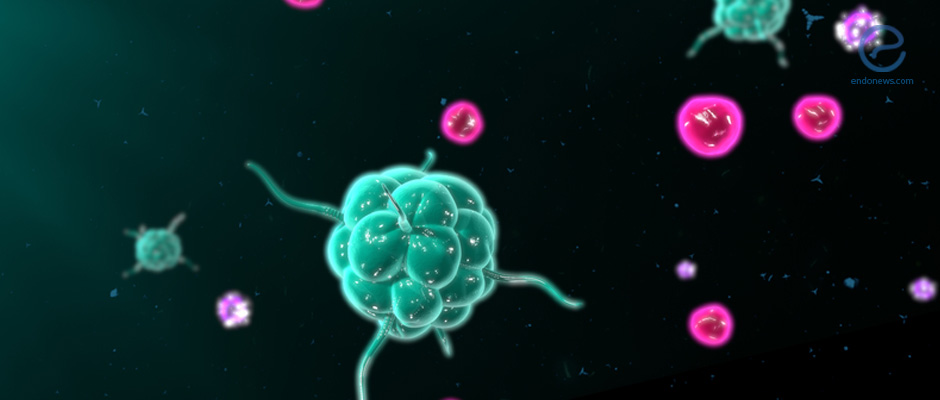The Role of Natural Killer Cells in the Development of Endometriosis Unravelled
Oct 26, 2017
The differential expression of cell surface receptors found on natural killer cells may facilitate the development of endometriosis.
Key Points
Highlights:
- The differential expression of natural cytotoxicity receptors (NCRs) on the surface of specialized immune cells in the peritoneal fluid may be linked to the development of endometriosis.
Importance:
- A better understanding of the biological mechanisms involved in the development of endometriosis could help doctors prevent or even treat the condition.
What’s done here?
- Researchers analyzed the peritoneal fluid of women with endometriosis and without endometriosis in terms of NCR expression on the surface of specialized immune cells called natural killer cells. They also measured the production of cell signaling molecules involved in inflammation by these cells.
Key results:
- They found that the percentage of CD56+/NKp46+ and CD56(dim)/NKp46+ natural killer cells was significantly higher in the peritoneal fluid of women with severe endometriosis, compared to women without endometriosis.
- They also found that the natural killer cells found in the peritoneal fluid of women with endometriosis produced significantly higher amounts of TNF-α and IFN-γ.
Limitations of the study:
- The sample size was quite small with a total of just 49 women with and without endometriosis being analyzed. Further studies with a larger number of women are needed to confirm the role of NCRs expressed on the surface of natural killer cells in the peritoneal fluid in the proliferation and angiogenesis of endometriotic cells.
Lay Summary
Specialized immune cells called natural killer cells found in the peritoneal fluid of women with severe endometriosis may facilitate the development of the disease, according to a study published in the American Journal of Reproductive Immunology.
This finding could help researchers find new ways to tackle severe endometriosis and prevent its development.
Natural killer cells are a type of white blood cell that plays a significant role in the rejection of tumor cells as well as cells infected by viruses. Their activation is triggered by particular proteins found on their surface called natural cytotoxicity receptors or NCRs. Once activated, natural killer cells produce cell signaling molecules such as tumor necrosis factor-alpha (TNF-α) and interferon-gamma (IFN-γ) that induce inflammation. It is thought that these cell signaling molecules may act directly on ectopic endometrial tissue triggering the implantation and proliferation of endometriotic cells.
To clarify the role of NCRs in the development of endometriosis, a group of researchers at Hirosaki University Graduate School of Medicine in Japan analyzed the peritoneal fluid of 21 women with endometriosis and 28 without.
The researchers measured the expression of NCRs on the surface of natural killer cells found in the peritoneal fluid. They also measured the production of a number of cell signaling molecules by these cells using a technique called flow cytometry,
They found that the percentage of a sub-type of natural killer cells known as CD56 positive/NKp46 positive and CD56(dim)/NKp46 positive cells was significantly higher in the peritoneal fluid of women with severe endometriosis, compared to women without endometriosis. (CD56 is a cell adhesion molecule and NKp46 is an NCR)
They also found that natural killer cells found in the peritoneal fluid of women with endometriosis produced significantly higher amounts of TNF-α and IFN-γ.
The researchers concluded that the differential expression of NCRs by natural killer cells in the peritoneal fluid may allow the proliferation of endometriotic cells and the formation of new blood vessels around them.
conference-preparation Natural killer cells inflammation natural cytotoxicity receptors (NCRs) tumor necrosis factor-alpha (TNF-aloha) interferon-gamma (IF-gamma) cytokines

